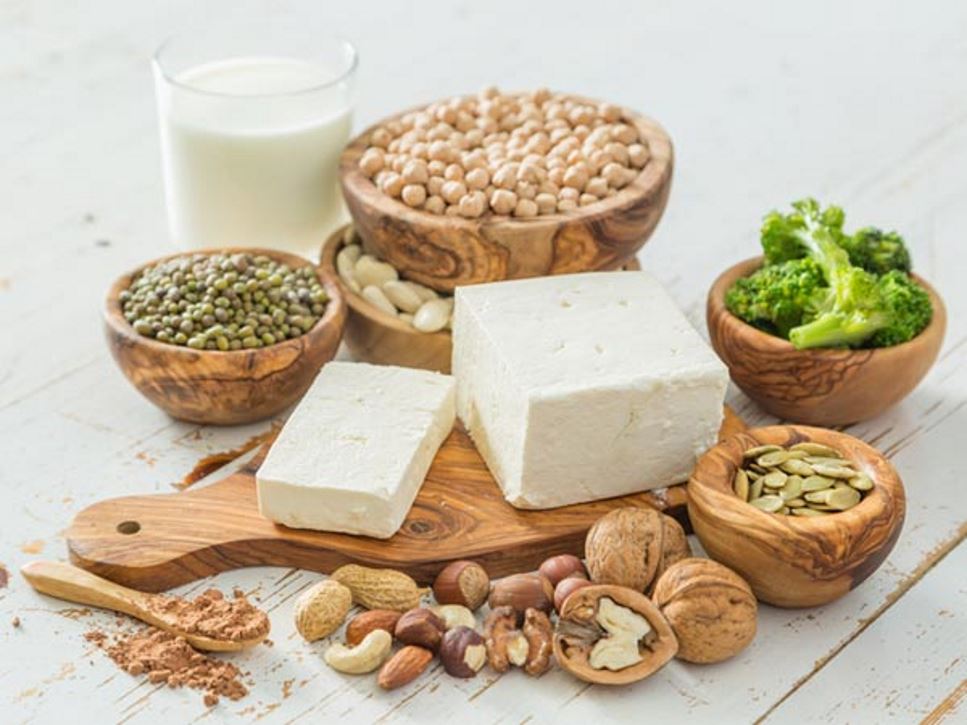For years, the conventional belief that ruled professional and amateur athletic training programs was that consuming meat was the only way to build muscle. Today, we know a balanced vegetarian diet that includes plant-based protein assists muscle development — no steak required.
Well-planned vegetarian diets that meet energy needs and contain a variety of plant-based protein foods, such as soy products, beans, lentils, grains, nuts and seeds, can provide adequate protein for athletes without the use of special foods or supplements. However, consideration must be made for the type of vegetarian diet an athlete follows:
- Vegan: A vegetarian diet that excludes all animal products, such as meat, poultry, fish, eggs, milk, cheese and other dairy products, and which relies on plant protein only to meet protein needs.
- Lactovegetarian: A vegetarian diet that excludes meat, poultry, fish and eggs but includes dairy products, like fat-free or low-fat milk, yogurt, and cheese, which are all sources of protein.
- Lacto-ovo vegetarian: A vegetarian diet that excludes meat, poultry and fish but includes eggs and dairy products, which also are sources of protein.
Athletes need to eat an appropriate amount of calories and a variety of protein foods throughout the day in order to meet their protein needs. Amino acids make up the protein that our bodies need. Meat, eggs and dairy foods are typically the most coveted protein sources because they contain all nine essential amino acids in the ratios that humans require. Most sources of plant-based protein are lacking in at least one of the nine essential amino acids. Soy and quinoa are two exceptions. Including a variety of plant-based protein foods will ensure all of the essential amino acids are being consumed.
Eat Protein Throughout the Day
Vegetarian athletes should include a quality source of protein with meals and snacks. Here are some tips for meeting protein needs without consuming meat:
- Eat five or six small meals per day that not only include a protein food, but also a variety of fruits, vegetables, whole grains and plenty of water.
- More than half your calories each day should come from quality carbohydrates, which fuel your muscles.
- Choose heart healthy sources of fat, such as olive oil, almonds, walnuts, avocados and canola oil.
- Find a registered dietitian nutritionist who can work with you to create a personalized vegetarian eating plan that meets your individual needs.
References
Find a Nutrition Expert
Looking for credible nutrition information and recommendations? The Academy of Nutrition and Dietetics' network of credentialed food and nutrition practitioners are ready to help!

